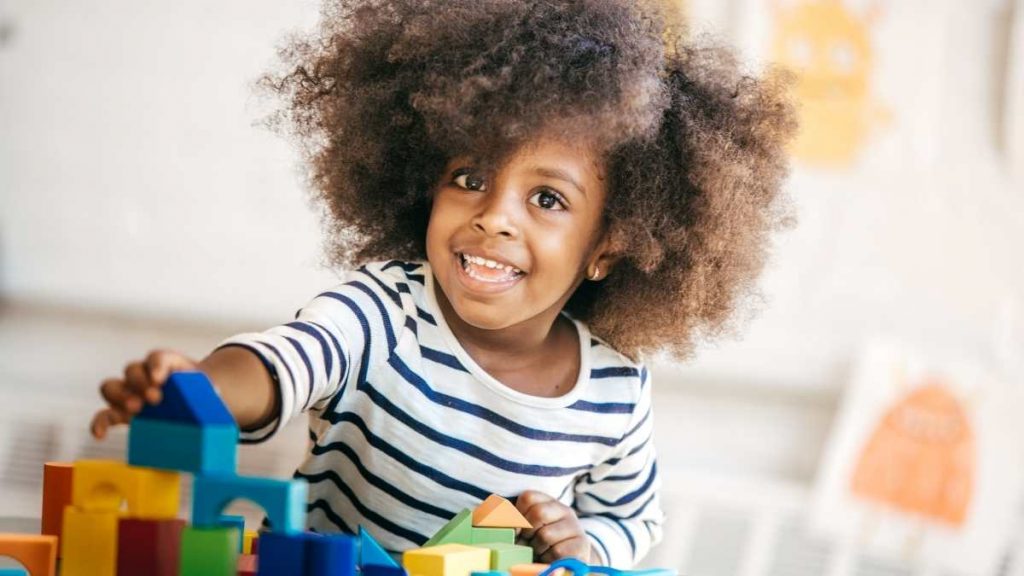Toddlers are challenging!
They rarely do as they are told, disagree with you constantly, and can go from zero to meltdown in an instant.
As I said, challenging.
One of the challenged I faced with my toddler was getting him to interact more. He seemed happy in himself, but I wanted to bring him out. I was concerned his development was suffering.
In that process, I learned a few tips.
Want to know how to get a toddler to interact more? Check out these tips.
7 Tips To Help Your Child Or Toddler Interact More

Want to learn how to get your toddler to interact more? It is, after all, an important part of babies and toddlers developing communication skills.
Here are some essential tips that can help you encourage your toddler to interact more frequently.
Tip #1 – Empathize with your toddler
Studies have shown that toddlers with more empathy for their feelings find it easy to develop empathy for others. Empathy is the cornerstone to developing successful interpersonal relationships.
Tip #2 – Create communication sessions
If your toddler finds it hard to communicate, you can create talking opportunities to encourage them to start talking. These opportunities will arise when your toddler wants something.
There are several ways to create talking opportunities with your toddler. For instance, you can place their favorite toy at a far distance and see how they react.
If your toddler points to the toy instead of talking, you can ask if he wants the toy. It will help him understand how to communicate and put his speaking skills to work.
Furthermore, you can rearrange the toys. Please place them in different locations visible to the kid.
Watch the toddler’s reaction. See if he will move towards it or not. Play the forgetful parent with your toddler because it helps boost his confidence.
Tip #3 – React to gesture or sound immediately
It might catch you unaware whenever your child utters a new word or sound. In such a situation, it causes a flurry of thoughts to you as a parent whether you heard what the kid said.
For instance, did she say “Mummy”? You may be contemplating if you heard her correctly. While thinking that, you can take minutes to respond to your child or hope she will repeat the words.
They are still learning to talk; remember that.
You want the child to repeat what they just said to check if you heard properly. In such a case, don’t wait for the child to attempt to say the word or make a gesture to acknowledge what you heard. Instead, respond naturally and in a relaxed manner. Ask your child to repeat.
It will help your child repeat the sound, word, or gesture because the toddler will see that communication is something you accept.
Give your child a reason to interact with you.
Tip #4 – Intercede with Compulsive Grabbing
At times, understanding how your toddler reacts in certain situations will help you know how to interact with them. For example, you don’t have to rush to intervene if your toddler grabs another child. Instead, you can observe their reaction.
Maybe your toddler is playing a game with the other kid. However, you can and should interfere if the other kid looks unhappy.
If your toddler constantly grabs the other kids, you need to intervene. Then, try to assess how your toddler reacts to things. Then, perhaps, they are struggling to take the toy.
Does the toy belong to them?
When you intervened, how was their response?
These expressions will enable you to know how to react to his feelings.
Tip #5 – Give Choices

When you give choices to your toddler, it promotes:
- language development,
- confidence,
- independence,
- compliance,
- increased problem-solving ability.
The next time your toddler points to an object, present two options. First, allow him to choose to use words, sounds, or signs.
Giving your toddler a choice on what to choose helps you determine what he likes or dislikes. It also allows you to understand his emotions and what triggers him to be happy.
Tips #6 – Let your toddlers earn it
Withhold items when your toddler desires them until he imitates you.
Let your toddler attempt to make the gesture, sign, or say the words a few times before handing over the item.
For instance, your toddler pulls you close to the cookie jar and points at it.
Don’t instantly hand it over to the child; turn it into a game. Act like you don’t know what the child wants and gesture to something else. Depending on your toddler’s reaction, you can decide the next step to take.
Encouragement is critical. If you anticipate what your toddler wants and give it to him consistently, it will be hard to make that connection you desire.
Tip #7 – Document their progress
If you carry out all the tips mentioned here, the next step is to document the progress.
Get a diary to track your observation of your toddler. Please take note of the sound, gestures, and words he uses when communicating.
Please include things like when he runs away from things that frighten him or shakes his head when he doesn’t want to accept something.
Communicative gestures are an essential learning process that can help your toddler.
He must associate words with respective actions. For instance, the toddler is waving as a form of saying goodbye or hello. Write these expressions down and build on them.
Having a diary can also help your toddler when he needs a specialist.
Understanding your Toddlers Development Stage

You must understand that some toddlers can express and interact better.
However, when your toddler can comprehend whatever you say but finds it hard to express himself, he is considered a later talker.
Your toddler will express his vocabulary based on the words he uses instead of how he pronounces them. For instance, words like “Mommy is gone,” “birdie,” “come,” and so on.
That is quite different from comprehension, which means the child understands or can correlate the word to its meaning.
For example, your toddler might not be able to pronounce the word “bottle.” However, he may understand what you mean if you request to bring it without gesturing or pointing.
If your child has developmental issues playing and walking, it can affect his communication with you.
In such a situation, it is preferable to consult a pediatrician.
Conclusion
Every parent knows that interacting with their toddler isn’t an easy task.
Whatever the case, each toddler wants to be happy, and you have a role to play.
Seeing your child interact more is a wonderful experience. Seeing their responses is incredible and helps to build their personality and social skills.
The simple tricks in this article can help encourage your toddler to interact more.





